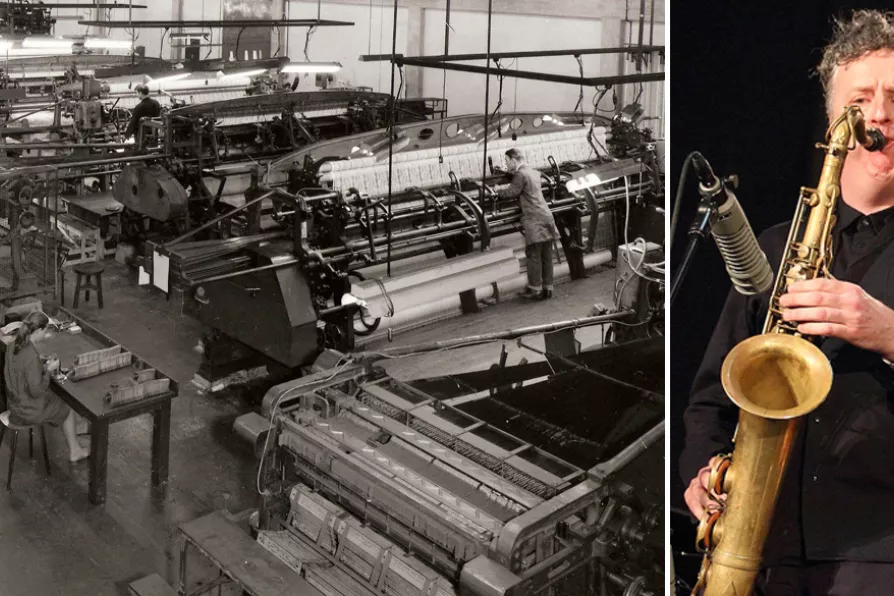The book feels like a writer working within his limits and not breaking any new ground, believes KEN COCKBURN
Listening to the machines made him want to conduct them!
CHRIS SEARLE speaks to saxophonist, composer and orchestrator JULIAN SIEGEL

 Jacquard lace-making machines, 1968; Julian Siegel, 2018
[Ages/CC; Schorle/CC]
Jacquard lace-making machines, 1968; Julian Siegel, 2018
[Ages/CC; Schorle/CC]
I’VE always argued that jazz grew and bloomed out of multiple acts of work.
The great blues singers like Bessie Smith (Washwoman’s Blues) or Big Bill Broonzy (Plowman’s Blues) sang about their aversion to alienating forms of labour, and some of the earliest jazz recordings invoked hard-working lives, including New Orleans pioneers Louis Armstrong and Sidney Bechet in Coal Cart Blues — where Armstrong sings of his boyhood hard labours of hauling sacks of coal — or trumpeter Freddie Keppard’s Chicago cattle abattoir narrative, Stockyard Strut, or Joe “King” Oliver’s paean to all Windy City workers, Working Man Blues.
Even early Duke Ellington tracks like Stevedore Stomp told of the travails of Harlem-based dockworkers.
Similar stories

Ben Cowles speaks with IAN ‘TREE’ ROBINSON and ANDY DAVIES, two of the string pullers behind the Manchester Punk Festival, ahead of its 10th year show later this month

This is poetry in paint, spectacular but never spectacle for its own sake, writes JAN WOOLF

CHRIS SEARLE picks his favourites

Two new releases from Burkina Faso and Niger, one from French-based Afro Latin The Bongo Hop, and rare Mexican bootlegs










